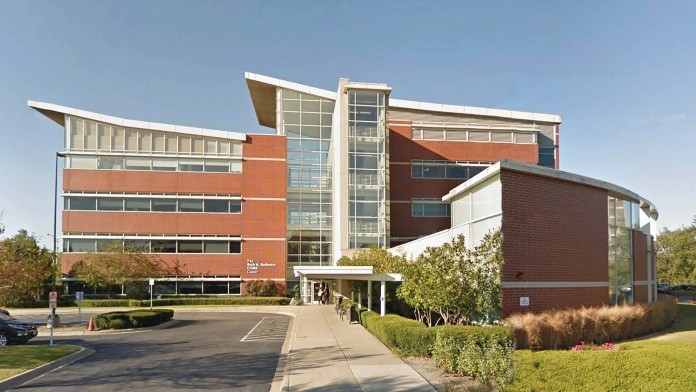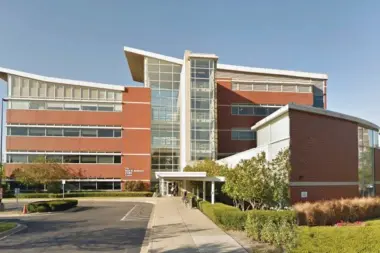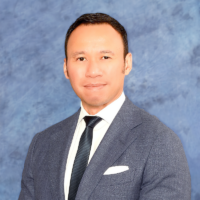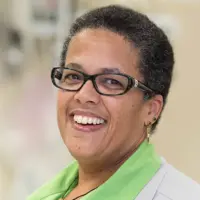He never received a response to enter the program and he has been waiting since September.
About Cook County Health and Hospital – The Core Center
Cook County Health and Hospital – The CORE Center is located at 2020 West Harrison Street in Chicago, Illinois, and is one of Cook County Health’s many treatment facilities in the area. The CORE Center offers many healthcare services including mental health and substance use disorder (SUD) treatment. The CORE Center includes the Bridge Clinic, an urgent care clinic for clients with alcohol and/or opioid use disorder. The facilities accept most major insurance, Medicaid and Medicare.
Specialty Services for Opioid Use Disorder in Chicago
The CORE Center and Bridge Clinic are only four miles from Chicago’s Millennium Park and the famous Cloud Gate sculpture, known as “The Bean.” The park spans about 25 acres and is close to the shores of beautiful Lake Michigan.
The clinic is the entry point for SUD treatment at any of the Cook County clinic sites. If you’re dealing with an urgent substance use situation, the Bridge Clinic can get you quick access to care such as medication assisted treatment (MAT) for opioid use disorder.
The clinic offers specialty services such as HIV prevention with PrEP, screening and treatment for sexually transmitted diseases (STDs), birth control and lab tests. Clients have pharmacy access to low cost and sometimes free medications.
Integrated Primary Care and SUD Treatment
The CORE center offers primary care and multiple other services in addition to SUD and mental health treatment. The center uses a harm reduction approach in an attempt to reduce deaths from opioid overdose while improving clients’ lives.
The treatment team includes a primary care provider, a recovery coach and a licensed clinical therapist. The primary care provider offers integrated medical treatment and prescribes medication.
Recovery coaches have experience with substance use recovery. They help clients identify recovery goals and collaborate to create a treatment plan to achieve them.
Licensed clinical therapists help clients identify co-occurring mental health disorders for focused treatment. Many people with SUD have anxiety, depression, trauma or other mental health challenges. The nice thing about this network is it’s easy to find inpatient and outpatient programs to assist you in your recovery.
Latest Reviews
Rehab Score
Gallery


Accepted Insurance
Other Forms of Payment
Medicaid is a state based program that helps lower-income individuals and families pay for healthcare. Medicaid covers addiction treatment so those enrolled can use their coverage to pay for rehab. When a program accepts Medicaid the client often pays very little or nothing out of their own pocket.
Private insurance refers to any kind of healthcare coverage that isn't from the state or federal government. This includes individual and family plans offered by an employer or purchased from the Insurance Marketplace. Every plan will have different requirements and out of pocket costs so be sure to get the full details before you start treatment.
Self-pay involves paying for treatment out of your own pocket. You can use savings or credit, get a personal loan, or receive help from family and friends to fund your treatment. If you don't have insurance or your insurance plan doesn't cover a specific program, self-pay can help ensure you still get the care you need.
Financial aid can take many forms. Centers may have grants or scholarships available to clients who meet eligibility requirements. Programs that receive SAMHSA grants may have financial aid available for those who need treatment as well. Grants and scholarships can help you pai for treatment without having to repay.
Medicare is a federal program that provides health insurance for those 65 and older. It also serves people under 65 with chronic and disabling health challenges. To use Medicare for addiction treatment you need to find a program that accepts Medicare and is in network with your plan. Out of pocket costs and preauthorization requirements vary, so always check with your provider.
Addiction Treatments
Levels of Care
Outpatient Programs (OP) are for those seeking mental rehab or drug rehab, but who also stay at home every night. The main difference between outpatient treatment (OP) and intensive outpatient treatment (IOP) lies in the amount of hours the patient spends at the facility. Most of the time an outpatient program is designed for someone who has completed an inpatient stay and is looking to continue their growth in recovery. Outpatient is not meant to be the starting point, it is commonly referred to as aftercare.
Drug and alcohol addiction often takes a heavy toll on one's body. Over time, a physical dependence can develop, meaning the body physiologically needs the substance to function. Detox is the process of removing drugs and/or alcohol from the body, a process that can be lethal if mismanaged. Medical detox is done by licensed medical professionals who monitor vital signs and keep you safe, healthy, and as comfortable as possible as you go through detox and withdrawal.
Intensive Outpatient Programs (IOP) are for those who want or need a very structured treatment program but who also wish to live at home and continue with certain responsibilities (such as work or school). IOP substance abuse treatment programs vary in duration and intensity, and certain outpatient rehab centers will offer individualized treatment programs.
Treatments
The goal of treatment for alcoholism is abstinence. Those with poor social support, poor motivation, or psychiatric disorders tend to relapse within a few years of treatment. For these people, success is measured by longer periods of abstinence, reduced use of alcohol, better health, and improved social functioning. Recovery and Maintenance are usually based on 12 step programs and AA meetings.
Drug rehab in Illinois is designed to help people recover from addiction to a number of substances. The length of each program and its intensity tend to vary, and the plan of care is based on your individual needs.
Many of those suffering from addiction also suffer from mental or emotional illnesses like schizophrenia, bipolar disorder, depression, or anxiety disorders. Rehab and other substance abuse facilities treating those with a dual diagnosis or co-occurring disorder administer psychiatric treatment to address the person's mental health issue in addition to drug and alcohol rehabilitation.
Opioid rehabs specialize in supporting those recovering from opioid addiction. They treat those suffering from addiction to illegal opioids like heroin, as well as prescription drugs like oxycodone. These centers typically combine both physical as well as mental and emotional support to help stop addiction. Physical support often includes medical detox and subsequent medical support (including medication), and mental support includes in-depth therapy to address the underlying causes of addiction.
Substance rehabs focus on helping individuals recover from substance abuse, including alcohol and drug addiction (both illegal and prescription drugs). They often include the opportunity to engage in both individual as well as group therapy.
Programs
Adult rehab programs include therapies tailored to each client's specific needs, goals, and recovery progress. They are tailored to the specific challenges adult clients may face, including family and work pressures and commitments. From inpatient and residential treatment to various levels of outpatient services, there are many options available. Some facilities also help adults work through co-occurring conditions, like anxiety, that can accompany addiction.
Recovery is most successful when clients feel accepted and validated by their peers and treatment providers. Facilities that offer LGBTQ-inclusive programming are committed to creating a safe space where everyone can grow and recover without fear of judgment or discrimination. They will have dedicated policies in place to create a safe and supportive environment that fosters free expression.
Young adulthood can be an exciting, yet difficult, time of transition. Individuals in their late teens to mid-20s face unique stressors related to school, jobs, families, and social circles, which can lead to a rise in substance use. Rehab centers with dedicated young adult programs will include activities and amenities that cater to this age group, with an emphasis on specialized counseling, peer socialization, and ongoing aftercare.
Clinical Services
Group therapy is any therapeutic work that happens in a group (not one-on-one). There are a number of different group therapy modalities, including support groups, experiential therapy, psycho-education, and more. Group therapy involves treatment as well as processing interaction between group members.
Trauma therapy addresses traumatic incidents from a client's past that are likely affecting their present-day experience. Trauma is often one of the primary triggers and potential causes of addiction, and can stem from child sexual abuse, domestic violence, having a parent with a mental illness, losing one or both parents at a young age, teenage or adult sexual assault, or any number of other factors. The purpose of trauma therapy is to allow a patient to process trauma and move through and past it, with the help of trained and compassionate mental health professionals.
Staff

Dr. Erik Mikaitis
CEO

Nicole Almiro
Chief Corporate Compliance & Privacy Officer

Shannon Andrews
Chief Equity & Inclusion Officer

Win Buren
Chief Human Resources Officer

Pamela Cassara
CFO

Dr. Claudia Fegan
Chief Medical Officer

Linh Dang
Chief Experience Officer

Angela O'Banion
CIO
Contact Information
2020 West Harrison street
Chicago, IL 60612




